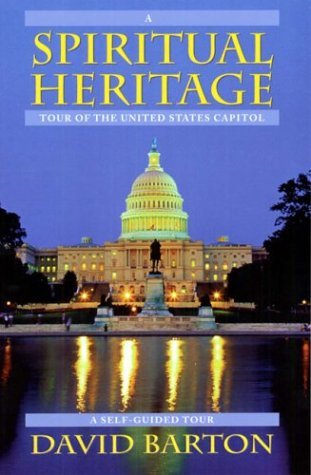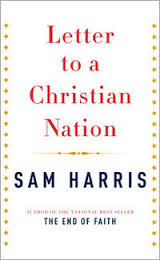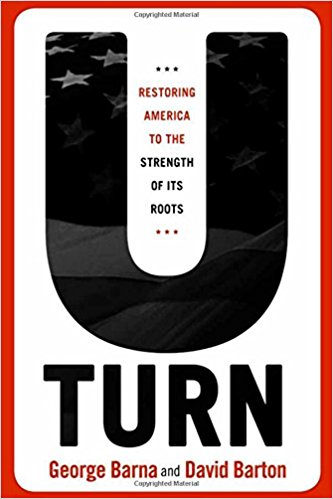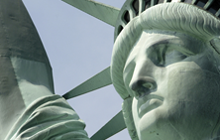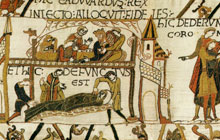The Argument Against
On the other hand, we are not a Christian nation if being a Christian nation means that: (a) all of our founders were Christians; or (b) that all our laws came directly from the Christian Scriptures (making us a nation ruled directly by the Christian God), or that (c) everything we do is a reflection of or consistent with those Judeo-Christian principles shared by most of America’s original citizens. A good overview of this argument was written in the following blog by Rob Boston.
5 Reasons America Is Not — And Has Never Been — a Christian Nation
By Rob Boston edited (Source) | The myth that America is a “Christian nation” is not only untrue, but promotes the pernicious idea that non-Christians are second-class citizens.
“The United States is a Christian nation.” If I had a nickel for every time I’ve heard this statement at a religious Right meeting or in the media, I wouldn’t be rich—but I’d probably have enough to buy a really cool iPad. The assertion is widely believed by followers of the religious Right and often repeated—and, too often, it seeps into the beliefs of the rest of the population as well. But like other myths that are widely accepted (you use only 10 percent of your brain, vitamin C helps you get over a cold, and the like), it lacks a factual basis.
Over the years, numerous scholars, historians, lawyers, and judges have debunked the “Christian nation” myth. Yet it persists. Does it have any basis in American history? Why is the myth so powerful? What psychological need does it fill?
I’m not a lawyer, and my research in this area has been influenced and informed by scholars who have done much more in-depth work. The problem with some of this material, great as it is, is that it tends to be—how shall I say this politely?—’dense.’ If I were a lawyer (the kind found on television dramas, not a real one), I would present the case against the Christian nation myth in a handful of easily digestible informational nuggets. Swallow them, and you’ll be armed for your next confrontation with Cousin Lloyd who sends money to Pat Robertson.
There are essentially five arguments that refute the Christian nation myth. I’m going to outline them here and then take a look at the history of the myth. From there, we’ll briefly examine the myth’s enduring legacy and how it still affects politics and public policy today.
- The Text of the Constitution Does Not Say the United States Is a Christian Nation
If a Christian nation had been the intent of the founders, they would have put that in the Constitution, front and center. Yet the text of the Constitution contains no references to God, Jesus Christ, or Christianity. That document does not state that our country is an officially Christian nation.
Not only does the Constitution not give recognition or acknowledgment to Christianity, but it also includes Article VI, which bans “religious tests” for public office. Guaranteeing non-Christians the right to hold federal office seems antipodal to an officially Christian nation.
In addition, the First Amendment bars all laws “respecting an establishment of religion” and protects “the free exercise thereof.” Nothing here indicates that the latter provision applies only to Christian faiths.
- The Founders’ Political Beliefs Would Not Have Led Them to Support the Christian-Nation Idea
Key founders such as James Madison and Thomas Jefferson opposed mixing church and state. They would never have supported an officially Christian nation.
Jefferson and Madison came to this opposition in two ways. First, they were well-versed in history and understood how the officially Christian governments of Europe had crushed human freedom. Moreover, they knew about the constant religious wars among rival factions of Christianity. Second, they had witnessed religious oppression in the colonies firsthand.
Remember, Madison was inspired to fight for church-state separation and religious liberty because he had witnessed the jailing of dissenting ministers in Virginia. Madison and other founders wrote frequently about the dangers of governments adopting religion; they often worked alongside clergy who made similar arguments. John Leland, a Massachusetts pastor and powerful advocate for church-state separation, said it best: “The notion of a Christian commonwealth should be exploded forever.”
Jefferson’s Virginia Statute for Religious Liberty, which many scholars consider a precursor to the First Amendment, guaranteed religious freedom for everyone, Christian and non-Christian. Attempts to limit its protections to Christians failed, and Jefferson rejoiced.
- The Key Founders Were Not Conservative Christians and Likely Would Not Have Supported an Officially Christian Nation
To hear the religious Right tell it, men such as George Washington, John Adams, Thomas Jefferson, and James Madison were eighteenth-century versions of Jerry Falwell in powdered wigs and stockings. This is nonsense.
The religious writings of many prominent founders sound odd to today’s ears because these works reflect Deism, a theological system of thought that has since fallen out of favor. Deists believed in God but didn’t necessarily see him as active in human affairs. The god of the Deists was a god of first cause: he set things in motion and then stepped back.
“The Citizens of the United States of America have a right to applaud themselves for giving to Mankind examples of an enlarged and liberal policy: a policy worthy of imitation. . . . All possess alike liberty of conscience and immunities of citizenship. It is now no more that toleration is spoken of, as if it was by the indulgence of one class of people that another enjoyed the exercise of their inherent natural rights. For happily the Government of the United States, which gives to bigotry no sanction, to persecution no assistance, requires only that they who live under its protection, should demean themselves as good citizens.” (Source: From George Washington to the Hebrew Congregation in Newport, Rhode Island, 18 August 1790)
- Shortly After the Constitution Was Ratified, Conservative Ministers Attacked It Because It Lacked References to Christianity
Ministers of the founding period knew that the Constitution didn’t declare the United States officially Christian—and it made them angry.
In 1793, just five years after the Constitution was ratified, the Reverend John M. Mason of New York attacked that document in a sermon. Mason called the lack of references to God and Christianity “an omission which no pretext whatever can palliate.” He predicted that an angry God would “overturn from its foundations the fabric we have been rearing and crush us to atoms in the wreck.”
- During the Post-Civil War Period, a Band of Politically Powerful Pastors Tried Repeatedly to Amend the U.S. Constitution to Add References to Jesus Christ and Christianity
Nineteenth-century ministers knew that the Constitution was secular and that the nation was not officially Christian. They sought to remedy that through an amendment that would have rewritten the preamble to the Constitution. The group’s proposed preamble read as follows:
We, the people of the United States, humbly acknowledging Almighty God as the source of all authority and power in civil government, the Lord Jesus Christ as the Ruler among the nations, His revealed will as the supreme law of the land, in order to constitute a Christian government, and in order to form a more perfect union, establish justice, insure domestic tranquility, provide for the common defense, promote the general welfare, and secure the inalienable rights and blessings of life, liberty and the pursuit of happiness to ourselves, our posterity and all the people, do ordain and establish this Constitution of the United States of America.
Congress did consider the amendment, but the House Judiciary Committee voted it down in 1874, declaring its awareness of the dangers of putting “anything into the Constitution or frame of government which might be construed to be a reference to any religious creed or doctrine.” The proposal was reintroduced several times after that; in fact, versions of it were still appearing in Congress as late as 1965.
Obviously, there would have been no need to amend the Constitution to declare America officially Christian if the document already said as much. But it didn’t, which is why the NRA felt so strongly about its emendation.
The Origins of the Christian-Nation Myth
This last point provides the key to understanding the staying power of the Christian-nation myth. The myth’s origins go back not to the founding period but to a much different time in history—the post-Civil War era.
During this period, the country came as close it ever would to being officially Christian. Many laws did reflect the tenets of that faith. For example, books, magazines, and even stage productions were banned if they were deemed insulting to the Christian faith. Protestant prayer and worship were common in many public schools. Laws curtailed Sunday commerce. Even the Supreme Court flirted with the Christian-nation concept in its infamous decision in the Holy Trinity case.
The post-Civil War era was also a period of great social upheaval. The end of slavery in the South created dislocation and confusion, which left people grasping for answers in the chaos. Other social changes loomed. Late in the century, women began advocating for the right to vote. Not surprisingly, some people reacted to these changes by latching onto reactionary religious views.
The myth also feeds several psychological needs. It assures religious Right supporters who fear the pace of social change that things like same-sex marriage and the rise of secularists are aberrations that run counter to the “real” Christian nature of the country. It also invokes a “stolen legacy” myth—the idea that a grand and glorious history (in this case, a Christian one) exists but that it is being covered up or denied by usurpers who seek to suppress the nation’s history as part of a power grab.
That the Christian-nation myth has many supporters among the religious Right doesn’t mean it has validity. It is, in fact, a form of “historical creationism” that mainstream scholars have repeatedly shown to be fallacious. But, like “scientific creationism,” the Christian-nation myth still has great power and wide acceptance. Humanists must confront—and debunk—the myth wherever it appears.
———
Having surveyed both polar arguments, the rest of this course experience will look at the political, moral (or legal), historical, and cultural arguments that both sides set forth. Consider the evidence, and then make your own judgment.





